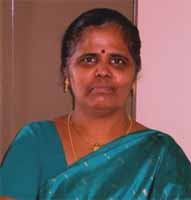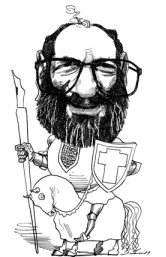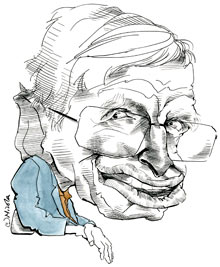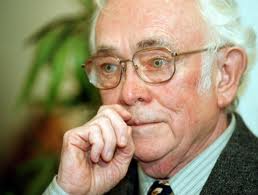 ஓரளவு அறிமுகமான எழுத்தாளருக்கு / அரசியல் விமர்சகருக்கு தமிழக இலக்கிய அரசியல் வட்டத்தில் அனுபவமிக்க ஒரு ஃகாட் ஃபாதர்/ஃகாட் மதர் தேவை. பிரபலமான அரசியல்வாதிகளின் அரசியல் அறிவை அவர்களின் அண்மைக்கால நடவடிக்கைகள் மூலம் அறிந்துக் கொண்டதால் தன்னுடைய அரசியல் ஞானம் அவர்களை விட எவ்வகையிலும் தரம் குறைந்ததில்லை என்று திடமாக நம்புகிறார். மிகப் பிரபலமானவர்களின் பிரபலமான படைப்புகளை வாசித்த அனுபவங்கள் மூலம் அவர்கள் பிரபலமான சூத்திரத்தை அவரும் அறிந்துக் கொள்ளும் வாய்ப்பு , அறிந்தவர்கள் சொன்ன அண்மைக்கால சரித்திரங்கள் என்ற பின்புலத்தின் அடிப்படையில் அவருடைய 2012க்கான திட்டங்கள்:
ஓரளவு அறிமுகமான எழுத்தாளருக்கு / அரசியல் விமர்சகருக்கு தமிழக இலக்கிய அரசியல் வட்டத்தில் அனுபவமிக்க ஒரு ஃகாட் ஃபாதர்/ஃகாட் மதர் தேவை. பிரபலமான அரசியல்வாதிகளின் அரசியல் அறிவை அவர்களின் அண்மைக்கால நடவடிக்கைகள் மூலம் அறிந்துக் கொண்டதால் தன்னுடைய அரசியல் ஞானம் அவர்களை விட எவ்வகையிலும் தரம் குறைந்ததில்லை என்று திடமாக நம்புகிறார். மிகப் பிரபலமானவர்களின் பிரபலமான படைப்புகளை வாசித்த அனுபவங்கள் மூலம் அவர்கள் பிரபலமான சூத்திரத்தை அவரும் அறிந்துக் கொள்ளும் வாய்ப்பு , அறிந்தவர்கள் சொன்ன அண்மைக்கால சரித்திரங்கள் என்ற பின்புலத்தின் அடிப்படையில் அவருடைய 2012க்கான திட்டங்கள்:
 Nov 18, 2011 – Umberto Eco has never heard of Q.R. Markham. The “author” of Assassin of Secrets, Markham’s been much-discussed in literary circles since it was discovered his thriller was almost entirely stitched together, like a quilt, from the works of such authors as Robert Ludlum, Charles McCarry and even the James Bond novels of John Gardner.
Nov 18, 2011 – Umberto Eco has never heard of Q.R. Markham. The “author” of Assassin of Secrets, Markham’s been much-discussed in literary circles since it was discovered his thriller was almost entirely stitched together, like a quilt, from the works of such authors as Robert Ludlum, Charles McCarry and even the James Bond novels of John Gardner.
In the bar of his Toronto hotel on Wednesday afternoon, I explain the Markham fiasco to Eco, who has been too busy touring his new novel to keep up with literary gossip. The timing of our conversation is interesting considering the man at the centre of The Prague Cemetery steals work in a similar fashion. The author leans forward, listening intensely, but shakes his head in disagreement when I compare Markham to The Prague Cemetery’s anti-hero, a talented forger named Simone Simonini. To Eco, the plagiarist is a thief while the forger is an unappreciated artist.
 CAMBRIDGE, ENGLAND—British scientist Stephen Hawking has decoded some of the most puzzling mysteries of the universe but he has left one mystery unsolved: How he has managed to survive so long with such a crippling disease.
CAMBRIDGE, ENGLAND—British scientist Stephen Hawking has decoded some of the most puzzling mysteries of the universe but he has left one mystery unsolved: How he has managed to survive so long with such a crippling disease.
 Josef Skvorecky’s life was divided almost evenly between Czechoslovakia and Canada. He lived in the former from 1924 to 1968, and for the next 44 years here, until his death Tuesday in Toronto at age 87. Though he and his wife Zdena visited Prague often after 1989, and though his books are Czech bestsellers, and though there is a university named after him, he told me that there was never any question in their minds that Canada was now home. He once joked that his destiny was to be a Czech-Canadian writer, a term that implied either that he was in two places at once (an Aristotelian impossibility) or, more likely, that he was nowhere. When Skvorecky was awarded the Neustadt International Prize for Literature in 1980, two letters of congratulation were read at the awards ceremony. One was from Graham Greene and praised two of his novellas as “in the same rank as James Joyce’s The Dead and the very best of Henry James’s shorter novels.” The other was from Czeslaw Milosz, who was awarded the Nobel Prize that same year. The Polish writer, living in exile in the United States, reminded the audience of Skvorecky’s Czech roots and addressed him as a representative of “our part of Europe.” Read side by side, the two letters reminded the audience that Skvorecky was, in his own words, a writer “between two worlds.”
Josef Skvorecky’s life was divided almost evenly between Czechoslovakia and Canada. He lived in the former from 1924 to 1968, and for the next 44 years here, until his death Tuesday in Toronto at age 87. Though he and his wife Zdena visited Prague often after 1989, and though his books are Czech bestsellers, and though there is a university named after him, he told me that there was never any question in their minds that Canada was now home. He once joked that his destiny was to be a Czech-Canadian writer, a term that implied either that he was in two places at once (an Aristotelian impossibility) or, more likely, that he was nowhere. When Skvorecky was awarded the Neustadt International Prize for Literature in 1980, two letters of congratulation were read at the awards ceremony. One was from Graham Greene and praised two of his novellas as “in the same rank as James Joyce’s The Dead and the very best of Henry James’s shorter novels.” The other was from Czeslaw Milosz, who was awarded the Nobel Prize that same year. The Polish writer, living in exile in the United States, reminded the audience of Skvorecky’s Czech roots and addressed him as a representative of “our part of Europe.” Read side by side, the two letters reminded the audience that Skvorecky was, in his own words, a writer “between two worlds.”





